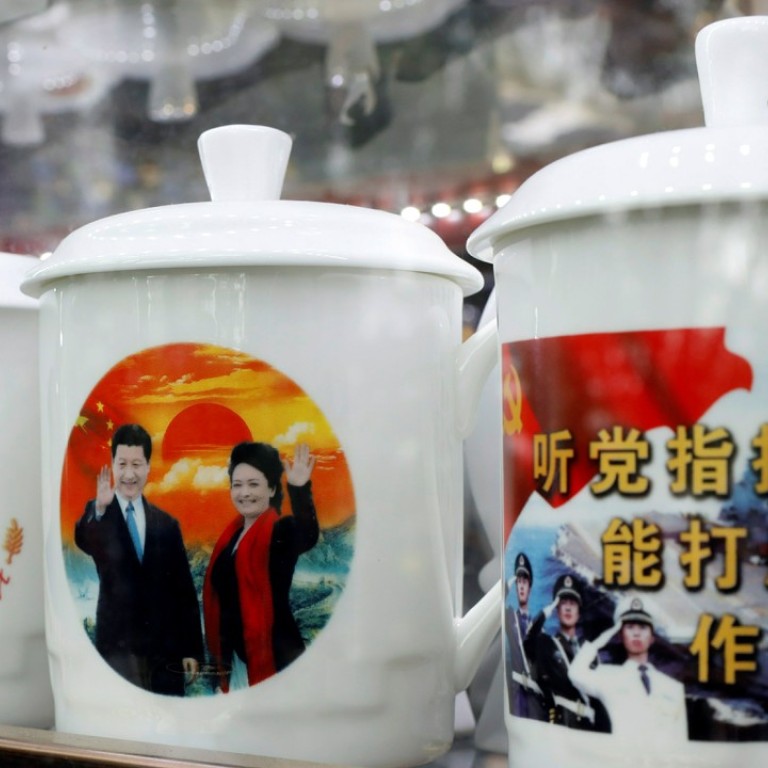
What do you call Xi Jinping? China’s elite echo language of Mao to sing the praises of their ‘leader and helmsman’
Revival of the grandiose rhetoric once used to eulogise the founder of Communist China signals president’s enhanced power and status
Chinese politicians gathering in Beijing for the Communist Party congress are mincing no words in their praise of President Xi Jinping, heaping unofficial titles that hark back to the Mao Zedong era on him and glorifying his achievements with gushing superlatives.
While it is not clear how the president responds to the flattery, at least three members of the decision-making Politburo, two generals and eight provincial party bosses have addressed Xi as the “lingxiu” – a reverent Chinese term for “leader” – during discussion panels at the week-long event that closes on Tuesday. However, the term has not yet appeared in official documents.
Some senior delegates also called him the “commander-in-chief”, while others extolled him for “taking the helm” of the country – with one provincial chief directly referring to him as the “helmsman”.
“With Secretary General Xi Jinping as the lingxiu and core [leader] to take the helm, our party and country will certainly brave all winds and waves and be invincible in our cause,” said Sun Chunlan, a member of the Politburo.
Not to be outdone, Bayanqolu, the party chief of Jilin province, described Xi as “the well-deserved lingxiu of the party, the helmsman of the party”.
Political experts and historians said their language evoked memories of the cult of personality revolving around Mao.
At its high point at the dawn of the Cultural Revolution, Mao was glorified as the “great lingxiu, great commander-in-chief, great helmsman and great teacher” – a series of honorifics that came to be known as the“four greats”.
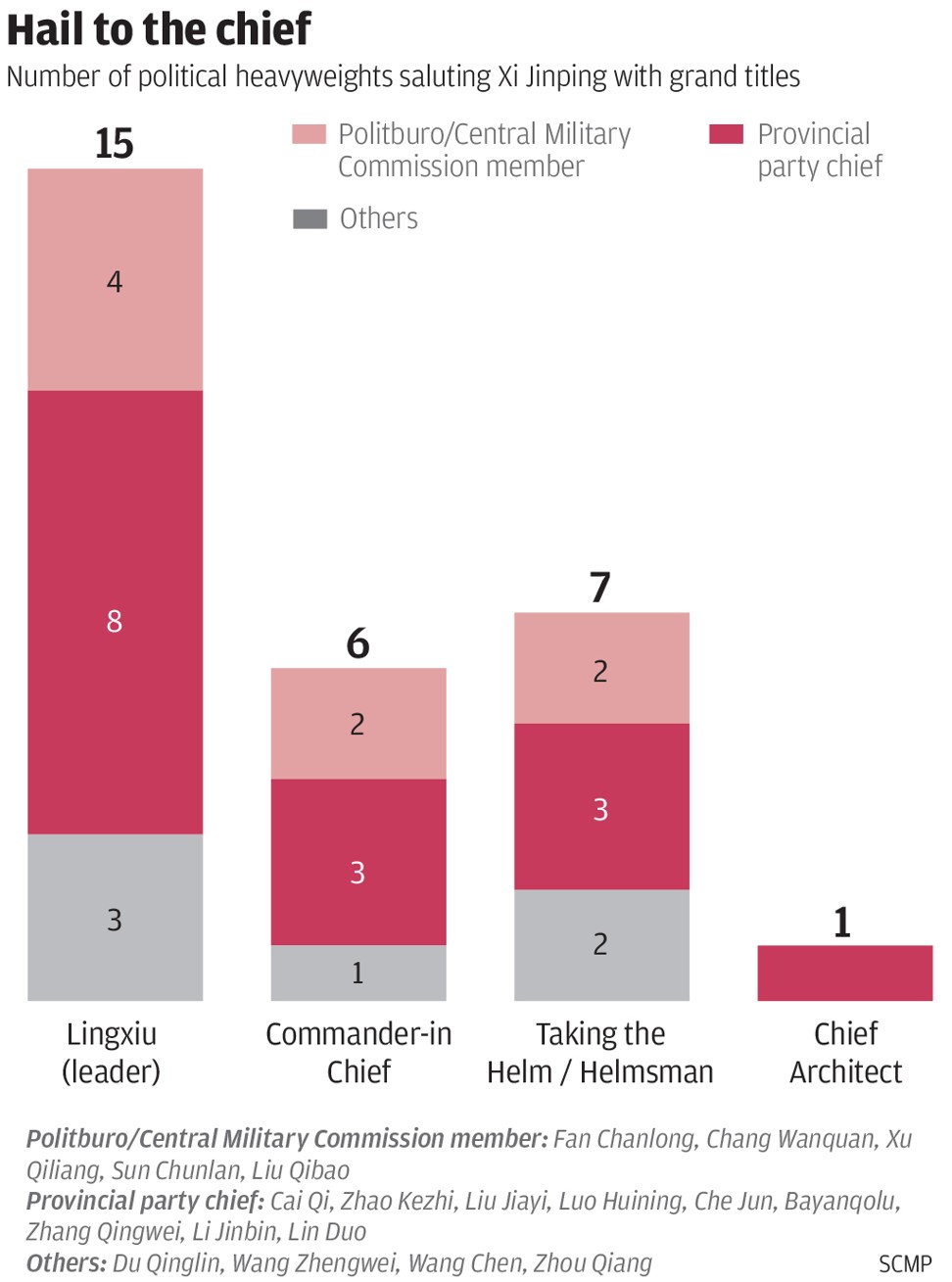
“Great lingxiu and teacher Chairman Mao” was once written into the party’s constitution a year after his death in 1976 at the end of the decade-long turmoil of the Cultural Revolution, before being taken out again in an amendment five years later.
The lavish terms were dropped after the death of Mao when Deng Xiaoping, the former paramount leader, tried to steer the country away from one-man rule and establish a more stable, collective model of leadership.
However, under Xi, the system has been tilting back towards a concentration of power into the president’s own hands, as he sets up and presides over a cluster of “central leading groups” to take a firm grip on most areas of policymaking.
In Communist Party-speak, salutations often gained a significance beyond their usual meaning after they became closely associated with a powerful leader.
Adopting a similar title could suggest a comparable status – or at least an attempt to attain this.
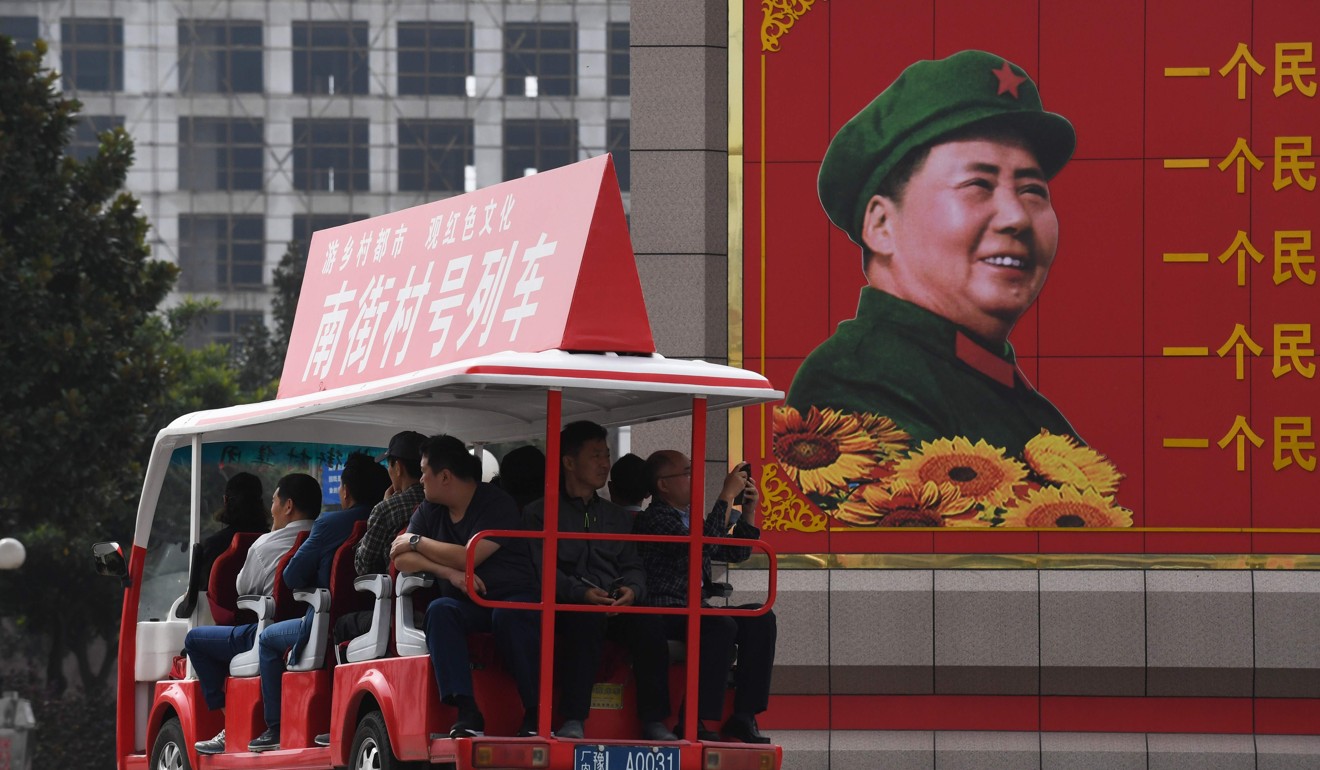
The term “lingxiu”, which according to University of Oxford professor Rana Mitter boasts a “rather more spiritual, grander air” than the more widely used word “lingdao”, has only been bestowed on one leader since Mao: his successor Hua Guofeng – the “wise lingxiu” – who was removed from power within a short period.
“In the party parlance, the salutation [of lingxiu] is a symbol of a personal cult, absolute authority and Leninist authoritarianism,” said Wu Qiang, a political commentator in Beijing.
In the lead up to the congress that will start Xi’s second term in power, speculation has been ripe on whether the General Secretary’s standing within the party would be further elevated beyond that of being the “core” of the central leadership – a status he secured a year ago that put him above Hu Jintao, his immediate predecessor.
The gushing about Xi as a “lingxiu” from political and military heavyweights at the highly choreographed event, pundits say, suggests a consensus among the party elite to place Xi at a level of authority above all his predecessors but Mao – the “great lingxiu” himself.
“That’s a clear indication of consensus among party leaders that they want to have a leader who has absolute authority, in terms of ideology, politics, and the military,” said Bo Zhiyue, a Chinese elite politics expert who founded a China institute that bears his name.
Bo sees the possibility of the word “lingxiu” along with “commander-in-chief” and perhaps even “helmsman” – being used in communiques released after the closing of the congress.
“It’ll be a further elevation beyond the ‘core’ status. In terms of the authority and status, he will be one grade below Mao, but above Deng, Jiang and Hu,” he said.
Xi’s political theory is already poised to be written into the party’s constitution as a guiding ideology at the close of the congress, probably with his name attached.
So far this is a laurel that has only been granted to Mao and Deng with their “Mao Zedong Thought” and “Deng Xiaoping Theory”.
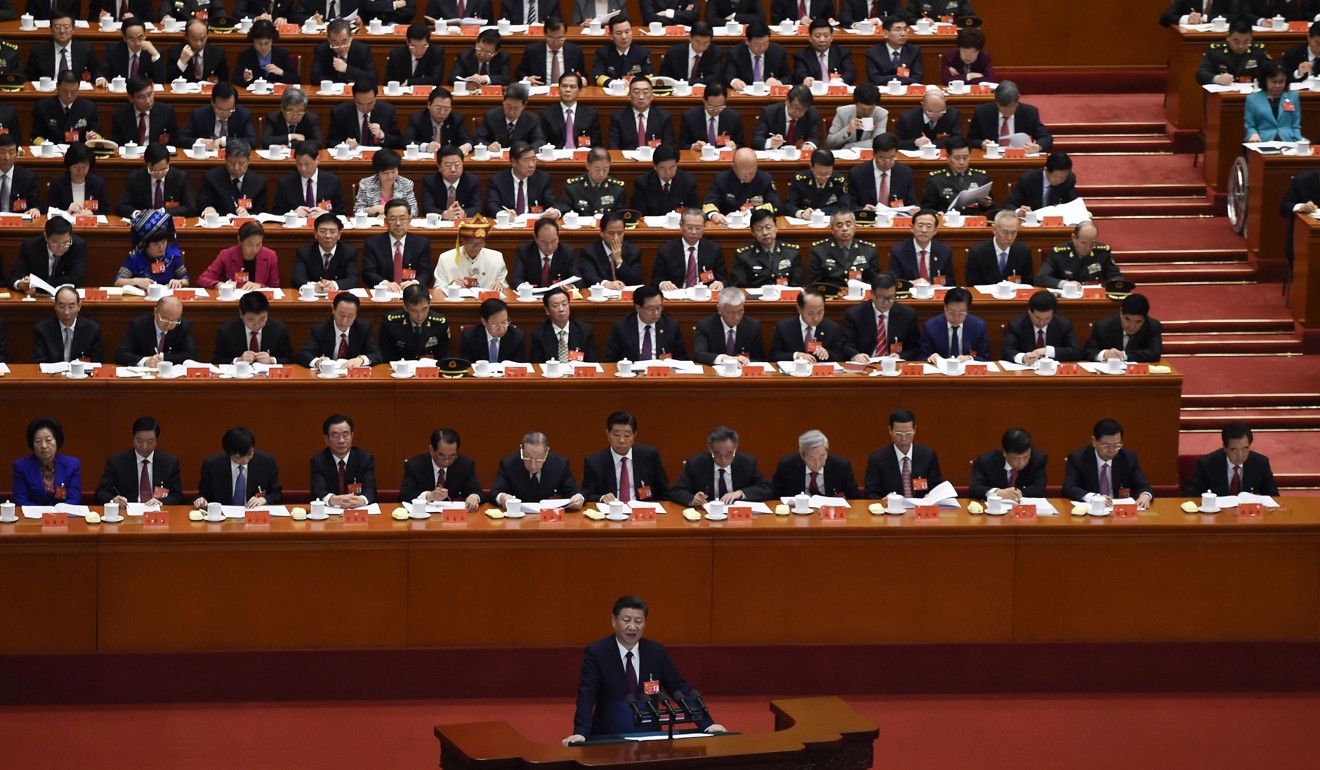
But Wu said the terms might not necessarily appear in official documents in the way they did when Xi’s “core” status was confirmed in the communique of the Central Committee’s sixth plenum. Instead, they might be more ardently used in propaganda discourse in Xi’s second term, he said.
Although a handful of senior officials have praised Xi for “taking the helm” of the party or the country, only Bayanqolu explicitly used the term “helmsman”.
Jeremy Brown, a history professor specialising modern China at Simon Fraser University in the Canadian province of British Columbia, said this suggested there was not yet a consensus – or behind the scenes directive – telling people to refer to Xi as the title.
“Bayanqolu may have gone too far with his gushing about Xi and time will tell if he is rewarded, ignored, or chastised for calling Xi a helmsman,” he said.
He also observed that while the word “great” frequently accompanied the praises heaped on Xi throughout the congress, it was never used in conjunction with “lingxiu”.
Beijing party chief Cai Qi, a protégé of the president since the early 1990s, hailed Xi as a “wise lingxiu”– using the salutation bestowed on Mao’s successor Hua, but no one went a step further by calling Xi a “great lingxiu”.
In People’s Daily, the party’s most authoritative mouthpiece, only Mao and his Soviet counterpart Stalin have been officially referred to as a “great lingxiu”.
When Fidel Castro died in 2016, Xi called him the “great lingxiu of the people of Cuba” in his condolences for the communist revolutionary, which were reported by People’s Daily.
“This is no accident,” Brown said, “This is pitching Xi Jinping as a higher-level leader than Jiang Zemin and Hu Jintao, but not yet equating him with Stalin, Mao or even Castro.”
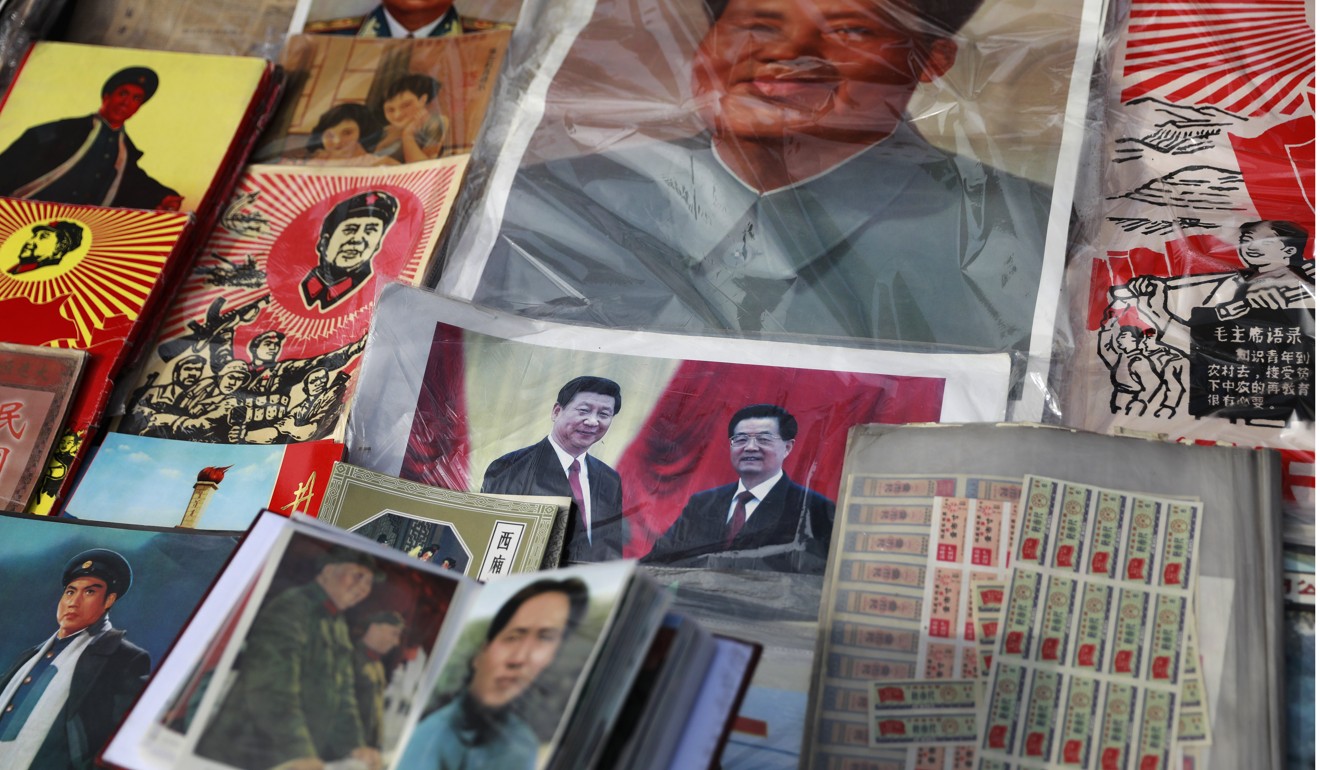
The reference to Xi as “lingxiu” in the propaganda apparatus started last October, when a media outlet affiliated with People’s Daily called for a Mao-like strongman leader to lead China’s rise again to greatness.
It said Xi was widely regarded by officials and the public as a “lingxiu” who would fit the bill, citing a survey it conducted of some 15,000 people.
The article also called for Xi to be named “the core” of the party leadership – a title that was granted to be just a week later at a key conclave of the party’s Central Committee.
Since then, Xi has sporadically been referred to as “lingxiu” in official media, including by state news agency Xinhua and state broadcaster CCTV. But he has not yet been called a “lingxiu” by People’s Daily.
The first official to call Xi a “lingxiu” was Tianjin party chief Li Hongzhong during a meeting with the port city’s officials in February. Widely known as an unabashedly vocal eulogist of the president, Li was also one of the very first provincial chiefs to call Xi the “core” leader early last year.
A more loud and clear declaration came from Central Military Commission vice-chairman Fan Changlong, who demanded the world’s second largest military to “engrave in their minds the lingxiu’s exhortation and commander-in-chief’s orders” during the military parade on July 30 to mark the 90th anniversary of the foundation of the People’s Liberation Army.
But the current congress is first time the term has been intensively used by political and military leaders to extol Xi.

